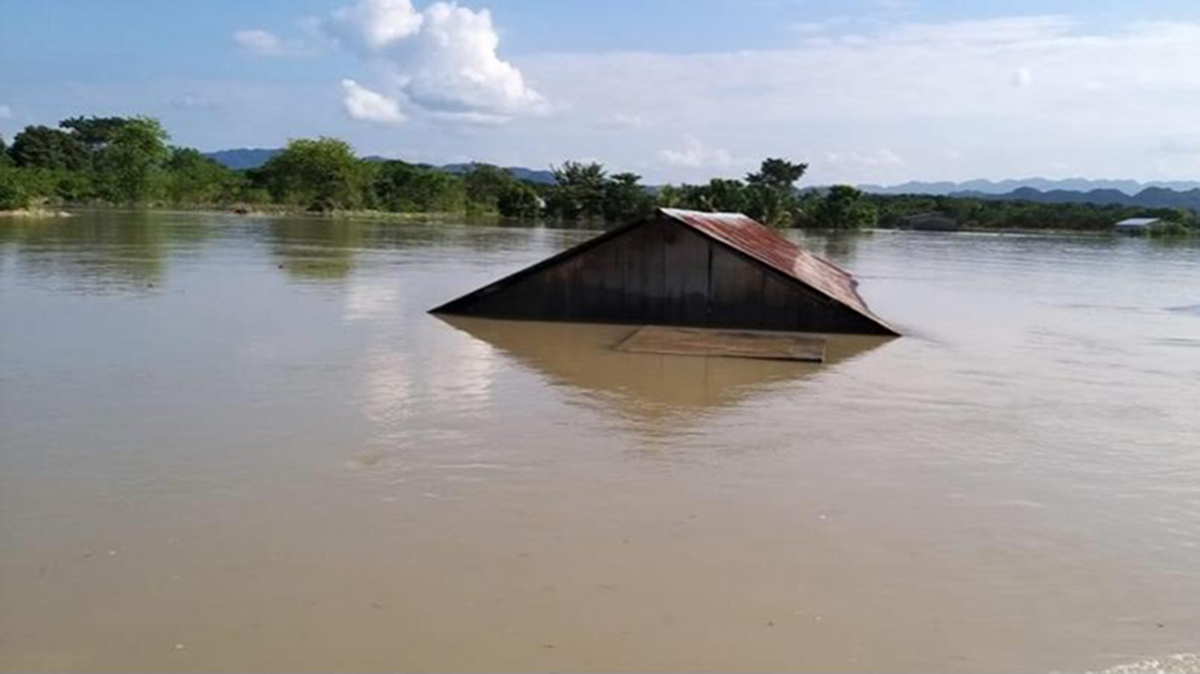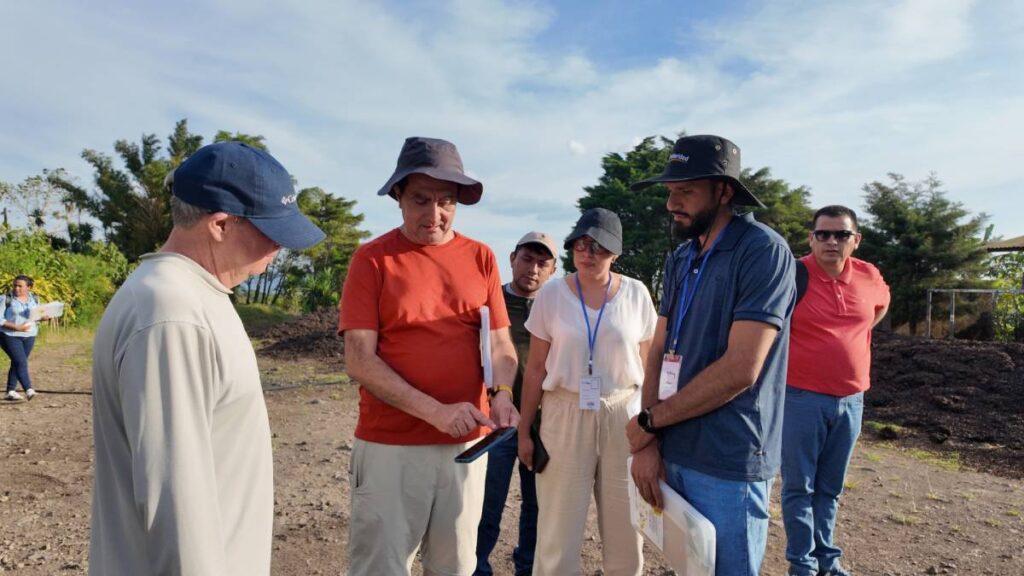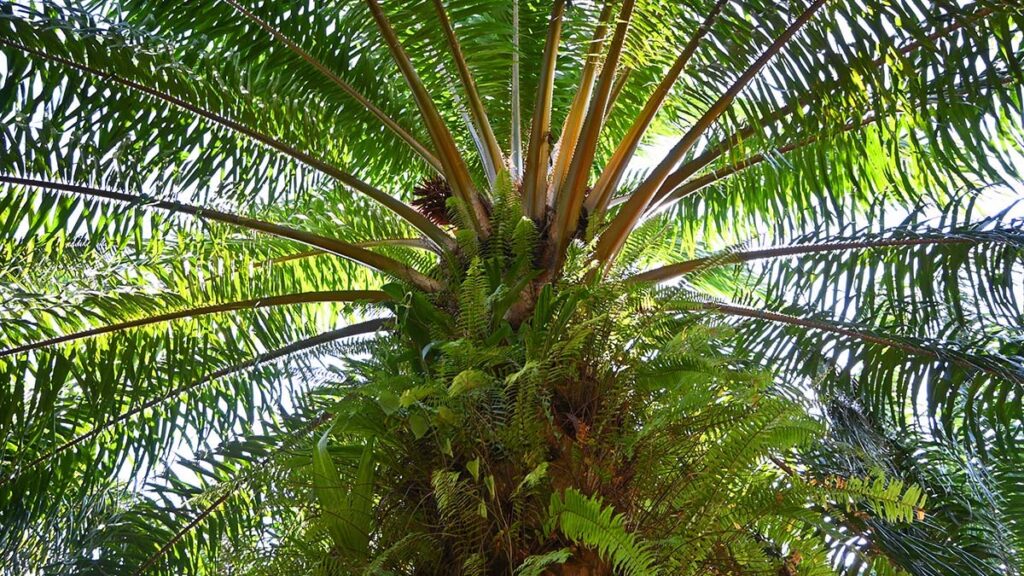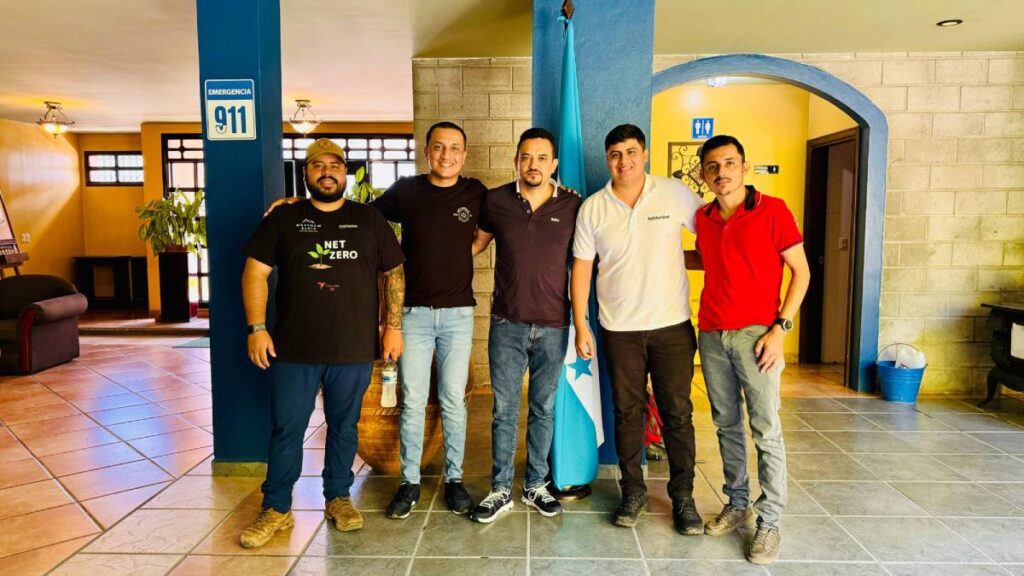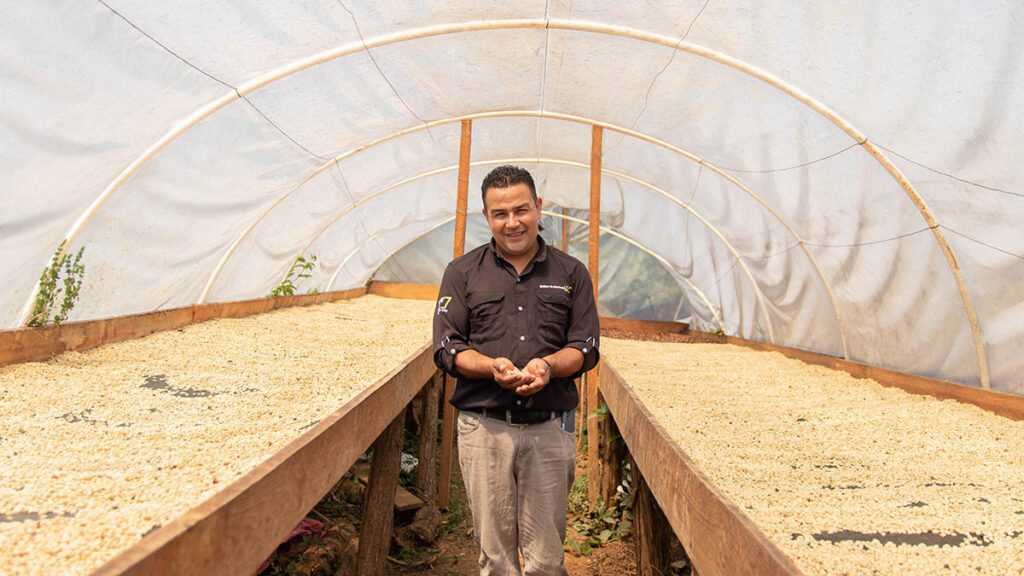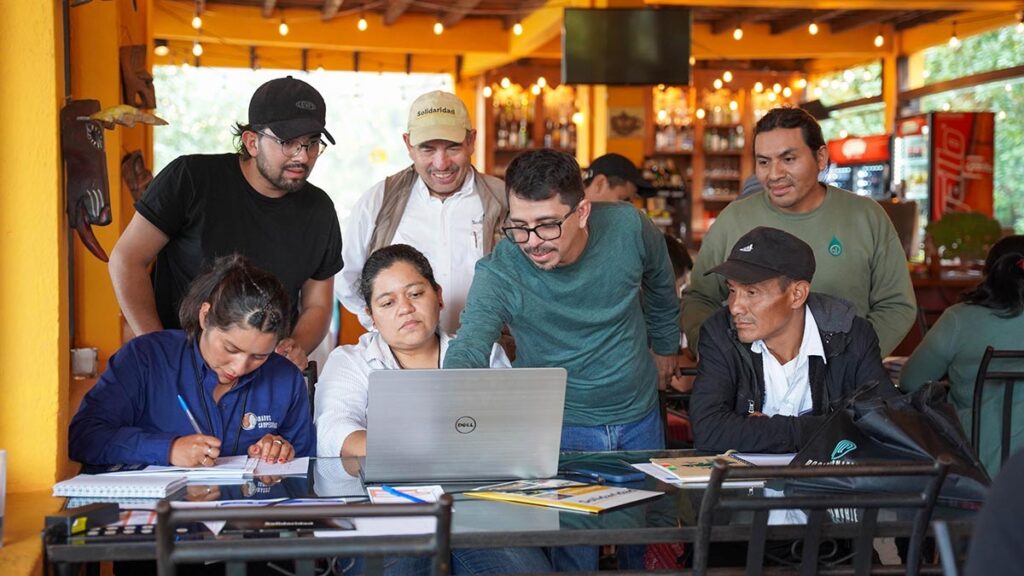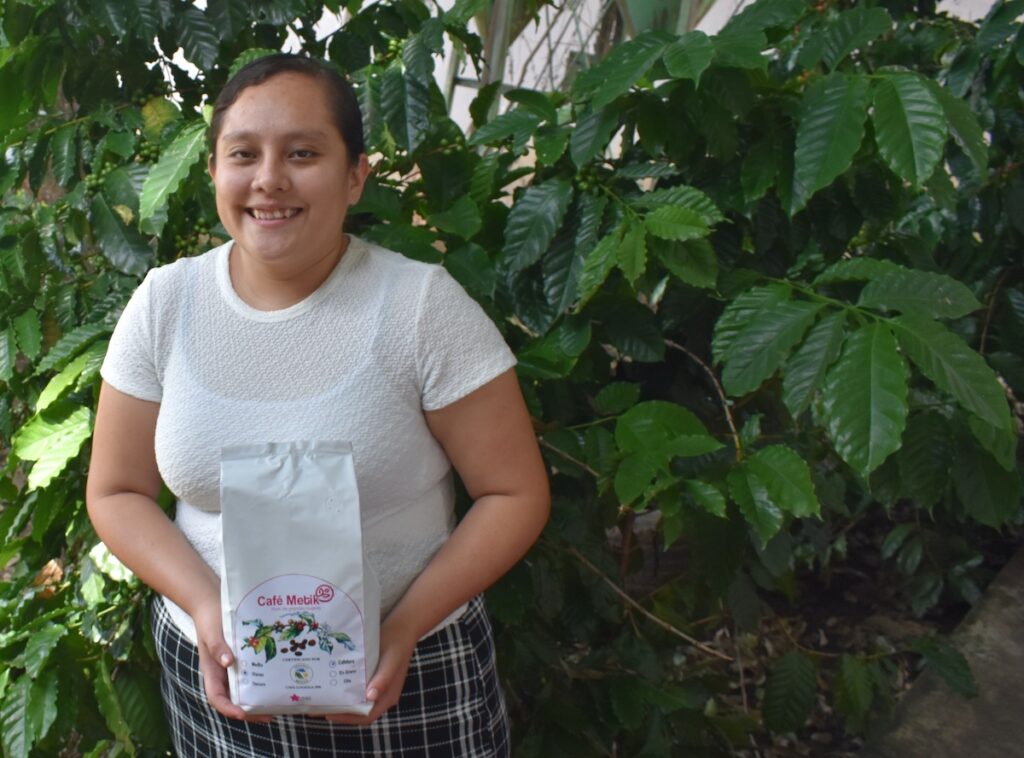Imagine you are at home. Picture your belongings, how your living areas are set up: your furniture and the pictures of your family arranged throughout the house, how you’ve set up your kitchen and your dining room. Now picture that a storm has hit your community. The rain is intense. You look through your kitchen window, wondering when it will all stop. The streets are flooded.
In 2020, along with coping with the effects of a global pandemic, many Guatemalan families experienced this very situation during Hurricanes Eta and Iota. More than 300,000 people had to evacuate their homes in Alta Verapaz and Quiché departments, and more than 350,000 experienced damages to their homes.
Picture this: A few hours go by, and now the water is up to your waist. You do your best to keep your most precious possessions dry. You decide to evacuate. What would you take with you at that moment?
Solidaridad partner, Nery Quej, is a smallholder technician working with palm producers in Chisec, Alta Verapaz and Ixcán, Quiché in Guatemala.
Losing everything to back-to-back storms
Guatemala’s infrastructure took a hit as well, with more than 700 roads washed out and other structural damages reported. In addition, more than 15,000 hectares of oil palm plantations, where smallholder producer families work with Solidaridad-implemented programmes, sustained damages.
“The road was damaged. Part of our land was water logged and it collapsed, so we could not get to our oil palm, corn, bean and banana production”, said smallholder María de Jesús Soto, a smallholder producing oil palm on 6 hectares. “It was a challenge to recover. We had to repair the road and change the harvesting system in the area that collapsed”.
Juan Bautista Esquivel is one of 95 oil palm smallholder producers working with Solidaridad who experienced production losses due to Eta and Iota and received support from this relief project.
Unfortunately, severe weather events like Eta and Iota show that while farmers in Guatemala struggle to achieve a fair price for the crops they produce, they also have to face the effects of climate change.
“We were about to harvest our oil palm production, but we weren’t able to access it. We lost nearly 35 tons. The fruit all fell and was dragged away by the floodwaters”, said smallholder producer Martín Coc.
“We also lost more than 400 quintals —or 40,000 pounds— of corn and nearly 18,000 Quetzals [equivalent to nearly 6 monthly salaries at Guatemala’s minimum wage] worth of plantain production,” said Martín.
These effects are ultimately transferred to us all, the end consumers, when we see production shortages or delivery interruptions.
Solidaridad and partners bring support to dozens of families
Solidaridad partnered with the Association of Producers for Integrated Development (ADINC) in Guatemala to distribute humanitarian assistance to 45 palm-producing families affected by these hurricanes. An additional 50 independent smallholders in close proximity also benefited from the funds raised through this project.
Solidaridad and partners disbursed $34,000 in humanitarian and technical assistance to palm-producing families affected by storms Eta and Iota in 2020 and 2021.
Among the aid distributed was support to farmers for land cleaning, planting preparation and seeds for a staple-crop project that would help them recover from their income losses and strengthen their families’ food security.
“Now that Solidaridad is implementing staple-crop projects with the farmers, to strengthen their resilience, we hope that these smallholder producers will be able to recover from the losses they suffered”, said Nery.
Another type of aid will be providing women with economic alternatives such as poultry or cardamom and other plants to improve their income and food security. This support will be given after the corn harvesting period.
“My plan for the future is to continue working to farm the land, and that my [6] children learn how to work with oil palm and other crops”, said María, who, like other smallholder families interviewed, knows there is a long recovery process ahead of them.

